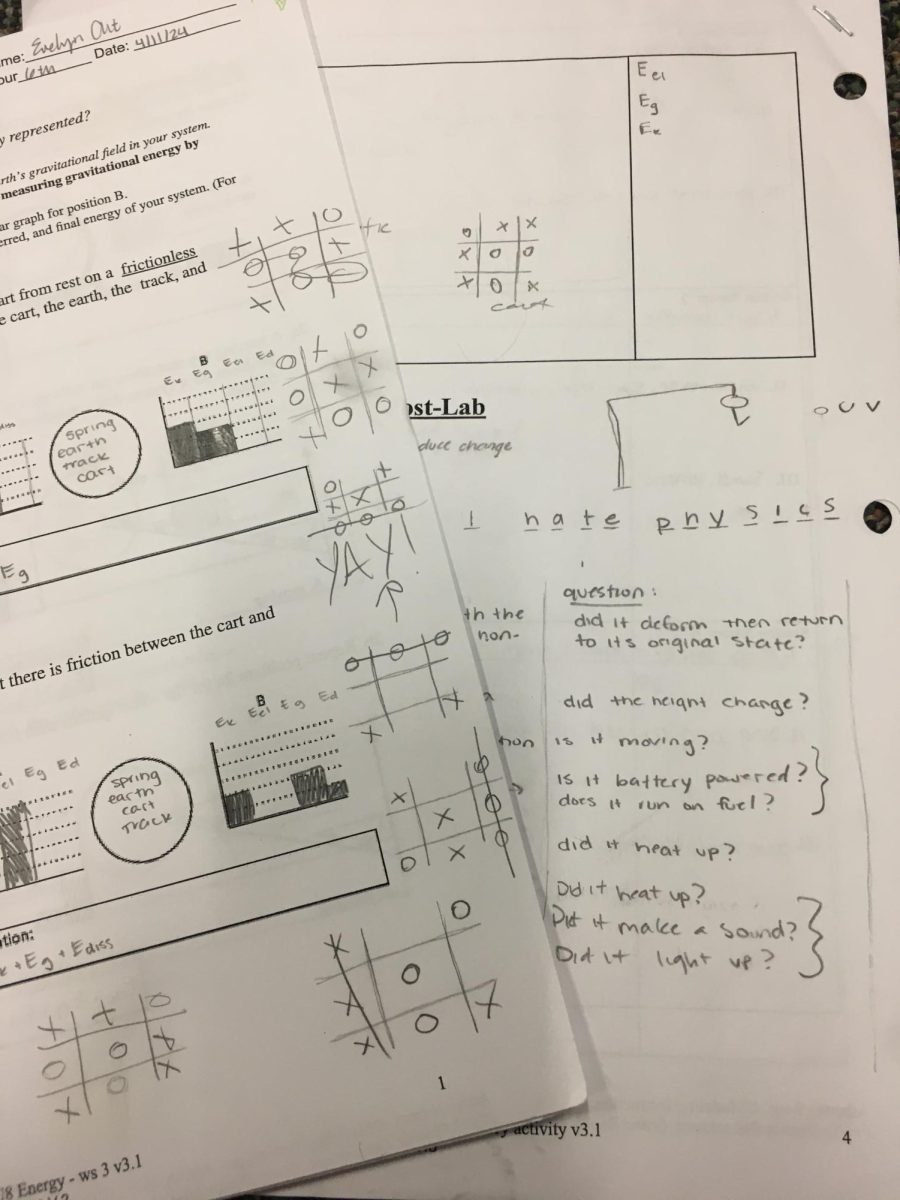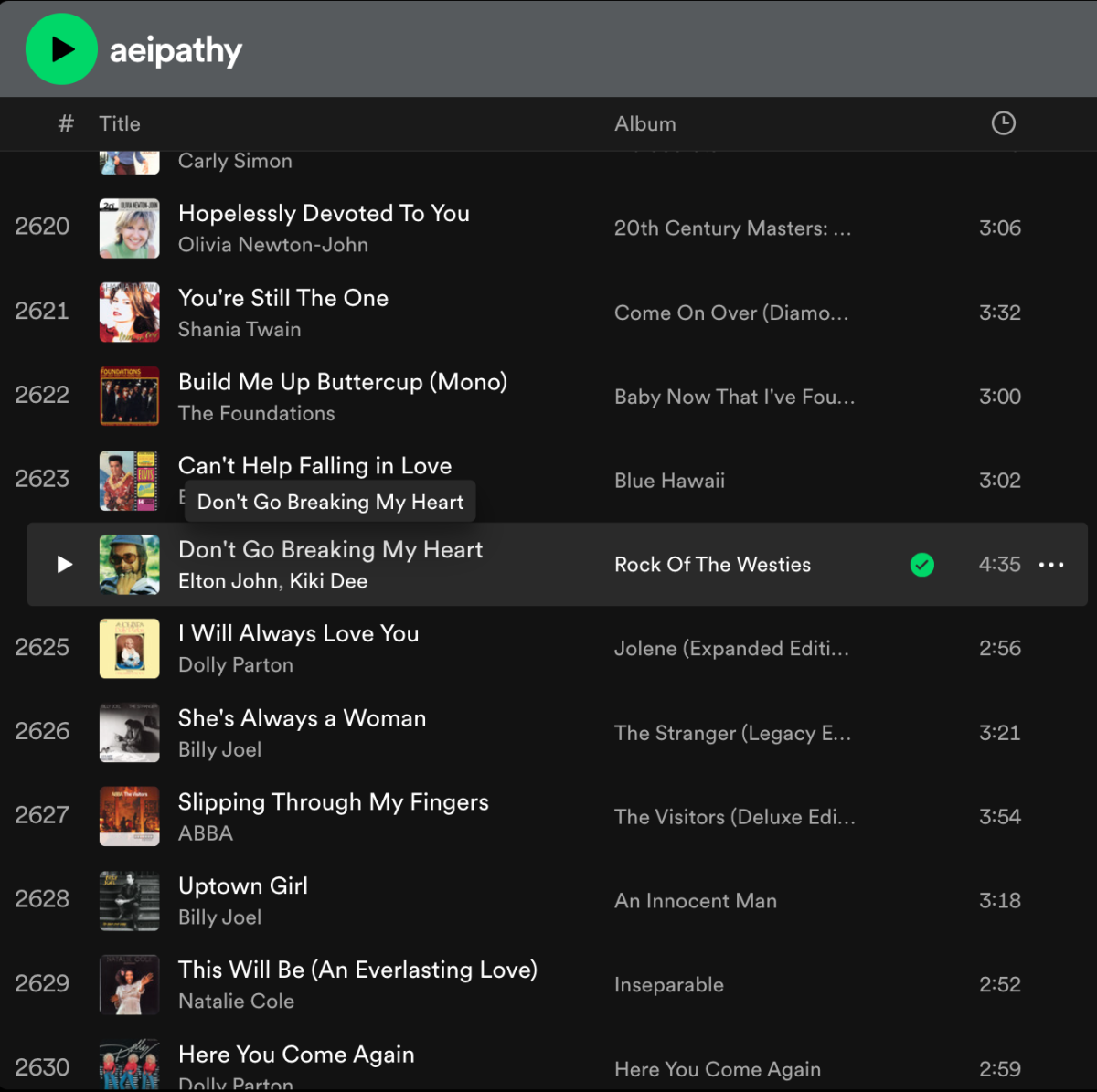The growth of Ada has changed the local landscape
Driving past blanketed horses in the winter is something senior Anthony Zarou will miss. Those drives are full of nostalgia hidden in even the smallest of things, and Anthony knows that far too well.
“I have these very distinct memories of going past that horse farm and looking at the horses,” Anthony said. “I thought it was funny how they would wear blankets in the winter. Just being able to pass by those horses every time I went home was kind of cool. Now that [Double C Ranch] is gone, it kind of makes me sad.”
Yet these drives are no longer full of that nostalgia for Anthony as Ada has seen some major growth in the past couple of years. With that, there is the good and the inevitable bad.
Growth brings people, people get to work for local businesses, and businesses help the community and economy. This prosperity does not come cost-free, but the cost impacted everyone differently, especially as the Double C Ranch has been one of the greatest costs.
And for Anthony, an Ada resident, the loss of this nostalgic ranch is a testament to the change he has seen around him.
“When we’re looking at how Ada used to be, it was a suburban place,” Anthony said. “It [had] a hometown feeling, but now, [Ada] is starting to become more metropolitan. [Ada] is starting to [attract] more businesses and everything, and more people will migrate here. It’s just a different vibe now.”
From an economic standpoint, this recent growth that Anthony mentions is nothing but fantastic news. Many Ada residents look at this new development as another opportunity to let Ada thrive. To some, the new neighborhood is worth the trade of the old horse farm. Sophomore Jaida Coller leans toward the liking of the new neighborhood.
Just being able to pass by those horses every time I went home was kind of cool. Now that [Double C Ranch] is gone, it kind of makes me sad.
— Anthony Zarou
“I think the new neighborhood will positively affect Ada,” Jaida said. “[The new neighborhood] will bring new businesses and more people so [that] Ada can grow.”
The exchange from nature to concrete is a strenuous dilemma. There is a finite amount of nature to match the infinite desire of humans, so we should be conscious of using nature so quickly. As more and more land is snatched up, we have to ask ourselves if we want a quaint horse farm, or some cookie-cutter houses crowding this small town.
“I think some of nature should be saved before everything is built into a building,” Jaida said. “I hope that a few things will not be built on.”
Jaida has a high opinion of this change and values the economic growth while still wanting some things to remain similar. While the growth of Ada has brought new opportunities for shopping, eating, and finding places to be with friends, it went from being just a couple of restaurants in Ada to over a dozen in less than a decade. She’s grateful for any greenery being saved, but junior Sheldon Ramsay in particular enjoys the new downtown Ada.
“The new Ada is a fun place to be [to] hang out with your friends,” Sheldon said. “You can go to the gas station, buy food, buy drinks, and other stuff. It’s a really nice place to hang out.”
Sheldon views these new activities as not only fun for him but beneficial for the Ada area as a whole. More kids will have a place to hang out, and he sees Ada as a more family-friendly place now.
“I think [the new neighborhood] will bring some nice families into the area,” Sheldon said. “They will get to see Ada Park and the rest of the town. Maybe I can [even] make some new friends.”
With varying stances on the growth of Ada, whether that be sad at the loss of the ranch or excited to have new faces in town, Ada’s changes have undeniably brought both good and bad development. But as this growth continues, Anthony recognizes that it could possibly become too much.
“I see why they are adding more neighborhoods,” Anthony said. “Ada is really starting to grow. But at the same time, I feel like overloading with neighborhoods and stuff is just going to end up making Ada less popular overall.”

Topher is a sophomore beginning his first year of writing for The Central Trend. He loves writing and hopes that others can appreciate his work. Topher...


























































































